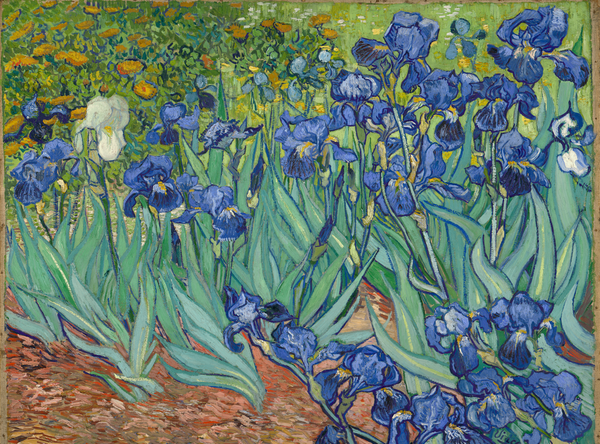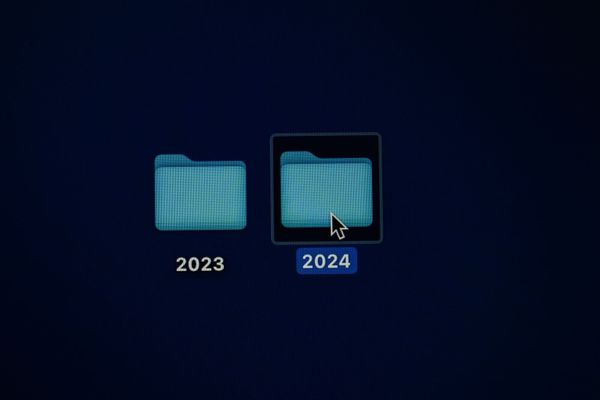OBP Autumn Newsletter
Welcome to our recent news and releases! We're celebrating the autumn with preparations for OA Week on 21-25 October (please access our Open Access Pack here!); new and award-winning titles, calls for proposals for our Applied Theatre Praxis series and the St Andrews Studies in French History and Culture, and the release of the first OA texbook on conservation biology among many other exciting news items.
Also, our Autumn Catalogue is now available! Please visit here for our latest titles.

Open Access Week 2019
Open Access Week has now finished, but we have updated the pack described below so that it can be of use all year round.
Open Access Week is coming soon! We have created an Open Access Pack for you which you can access here and which includes:
- A guide to Open Access.
- Informative flyers: tailored to researchers and students to raise awareness about how they can take advantage of OA and of the OBP publishing model, both as readers and as potential authors.
- Social Media: a series of tweets/email copy for OA week and beyond. These tweets include information about our work at OBP, about the ScholarLed OA publishers' coalition and broader OA issues. Please choose what information you’d like to share in your social media accounts!
- Slides that can be included in any presentation about Open Access.
- Blogs: last year we released a series of blog post for OA Week: An Academic's Guide to Open Access. This year the ScholarLed blog will be posting throughout the week, with a broad range of contributors discussing Open Infrastructure and its importance for OA publishing.
Please tag us on any of your posts (Twitter @openbookpublish / Facebook @openbookpublish) and share any feedback or comments you'd like by emailing lucy@openbookpublishers.com.

OBP Releases New Metrics Standard
Reliable and accurate metrics about the number of readers we receive are essential to make the case for the value of Open Access books. In 2017, OBP received funding from the European Commission to develop open source tools and standards for everyone that could allow the collection of usage metrics from various Open Access distribution platforms. This project, called HIRMEOS (High Integration of Research Monographs in the European Open Science Infrastructure), has allowed us to rethink, streamline, and expand our previous stats system in order to allow its uptake by the wider publishing community.
Some of OBP’s contributions to the project include a common standard to record and store metrics, and a database that implements standard and modular tools to collect data from the major distributing platforms. As a result of our efforts with the other members of HIRMEOS, we have been able to deploy a shared database containing data for all books published by the project partners.
Although HIRMEOS has now ended, OBP, alongside the OPERAS consortium, are working towards a sustainability plan for the whole metrics suite to be included in the European Open Science Cloud (EOSC).
More information: https://www.openbookpublishers.com/section/92/1

A Fleet Street in Every Town: Prizewinner!
Congratulations to Andrew Hobbs, whose book 'A Fleet Street in Every Town: The Provincial Press in England, 1855-1900' has received the Robert and Vineta Colby Scholarly Book Prize for the best book on Victorian newspapers and periodicals, awarded by the Research Society for Victorian Periodicals.
The selection committee described the book as 'field-defining'; a title that 'convincingly challenges enduring assumptions that London newspapers acted as the national press in the Victorian period.' They exalted its 'meticulous research, originality, and significance for future scholars' of the provincial press in Britain, whilst also noting that it is 'written with imagination, flair and infectious enthusiasm', bringing 'the nineteenth century press to full, vibrant, pulsating life'.
The University of Central Lancashire and the Marc Fitch Fund generously contributed to this Open Access publication.
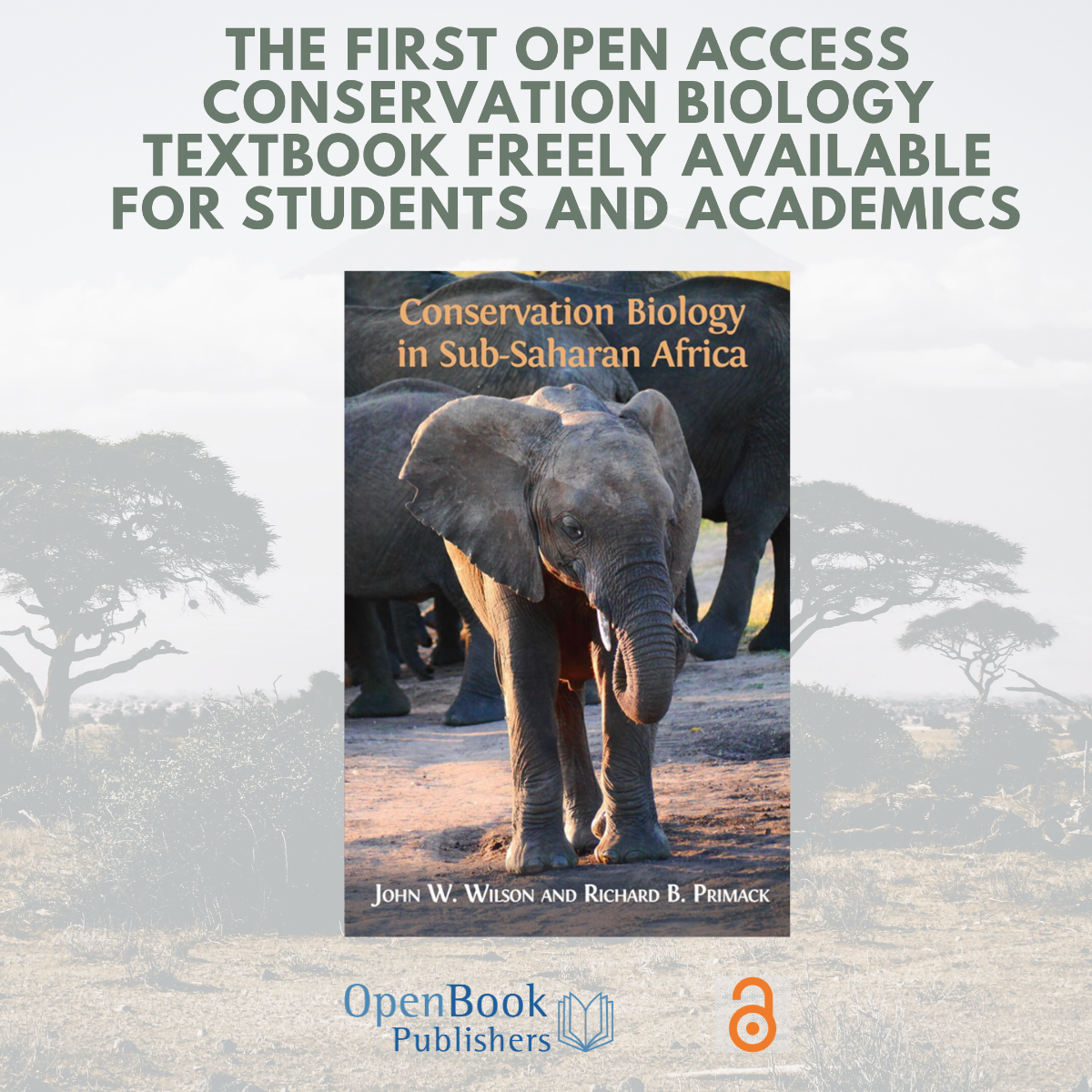
Conservation Biology In Sub-Saharan Africa
In September we released the first open access textbook on conservation biology in Sub-Saharan Africa, freely available for students and academics working in this region.
Conservation Biology in Sub-Saharan Africa, written by John W. Wilson and Richard Primack, is a textbook created specifically for readers on the continent. It has already been read and downloaded over 3,800 times since publication: this up-to-date study is an essential resource for both undergraduate and graduate students, as well as for professionals and policy makers working to stop the rapid loss of biodiversity in Sub-Saharan Africa and elsewhere. The book explores the challenges and potential solutions to key conservation issues in Sub-Saharan Africa. It includes boxes covering specific themes written by scientists who live and work throughout the region, together with recommended readings, suggested discussion topics and an extensive bibliography. Furthermore, a wealth of accompanying resources aimed at academics, students and people interested in the field of conservation biology are available, including:
Individual images and chapters:
You can download individual chapters and images here.
Teaching resources:
We will soon be launching a teaching platform on which you will be able to share your notes, lesson plans and presentations with other teachers and academics in the field of conservation biology. If you are interested in uploading your teaching material to this platform, you can do so here. Please notify John W. Wilson here after uploading your content.
Discussion forum:
You can report updates, corrections or add your comments by joining the discussion forum for 'Conservation Biology in Sub-Saharan Africa' here.
This has been a fantastic project to work on and we are wholeheartedly thankful to everyone who made it possible, with a special mention to the authors John W. Wilsonand Richard B. Primackand to The Lounsbery Foundation, which financed its publication.
The PDF, HTML, and XML editions are free to read and download; the EPUB, MOBI, paperback and hardback editions are available from the book's homepage: doi.org/10.11647/OBP.0177.

Our Latest Titles
Over the last three months we have released a range of exciting Open Access titles. Written by Kathryn M. Rudy, one of our returning authors, Image, Knife, and Gluepot: Early Assemblage in Manuscript and Print painstakingly reconstructs the process by which a Netherlandish Book of Hours was created, and discusses its significance as a text at the forefront of fifteenth-century book production. We have developed our own image zooming function to display this book's beautiful illustrations to their best advantage, using open source software that allows the reader to zoom in and view the manuscripts in detail.
Another returning author, Jane Bliss, has published the collection left unfinished upon the death of its original author, Douglas Gray: Make We Merry More and Less: An Anthology of Medieval English Popular Literature.
We're also delighted to announce the publication of a new Open Access textbook History of International Relations: A Non-European Perspective by Erik Ringmar, which pioneers a new approach by explicitly focusing on non-European cases, debates and issues. It is a unique textbook for undergraduate and graduate students of international relations, and anybody interested in international relations theory, history, and contemporary politics.
Our virtual journey through the world continues and our next stop is Asia, and more particularly the Himalayan region, with Selma K. Sonntag and Mark Turin's The Politics of Language Contact in the Himalaya.
Finally, we finish our travels in Lisbon, Portugal, with Maria Manuel Lisboa's latest study Essays on Paula Rego: Smile When You Think about Hell, an incisive monograph containing powerful essays on the major contemporary Portuguese artist.
Some other new interesting titles to browse include Engaging Researchers with Data Management: The Cookbook, an invaluable collection of 24 case studies from across the globe; Labour and Value: Rethinking Marx’s Theory of Exploitation, a provocative study in which Ernesto Screpanti provides a rigorous examination of Marx’s seminal theory of exploitation. We are also excited about the forthcoming publication of Studies in Rabbinic Hebrew, edited by Shai Heijmans and the first title in the new Cambridge Semitic Languages and Cultures, a series created in collaboration with the Faculty of Asian and Middle Eastern Studies at the University of Cambridge. Finally, a new edition of the late Professor Stephen SiklosAdvanced Problems in Mathematics: Preparing for University will be available for candidates preparing for entrance examinations in mathematics and scientific subjects, including STEP (Sixth Term Examination Paper) in the following months.
To browse any of our latest release or have a look at our forthcoming titles, visit https://www.openbookpublishers.com/.
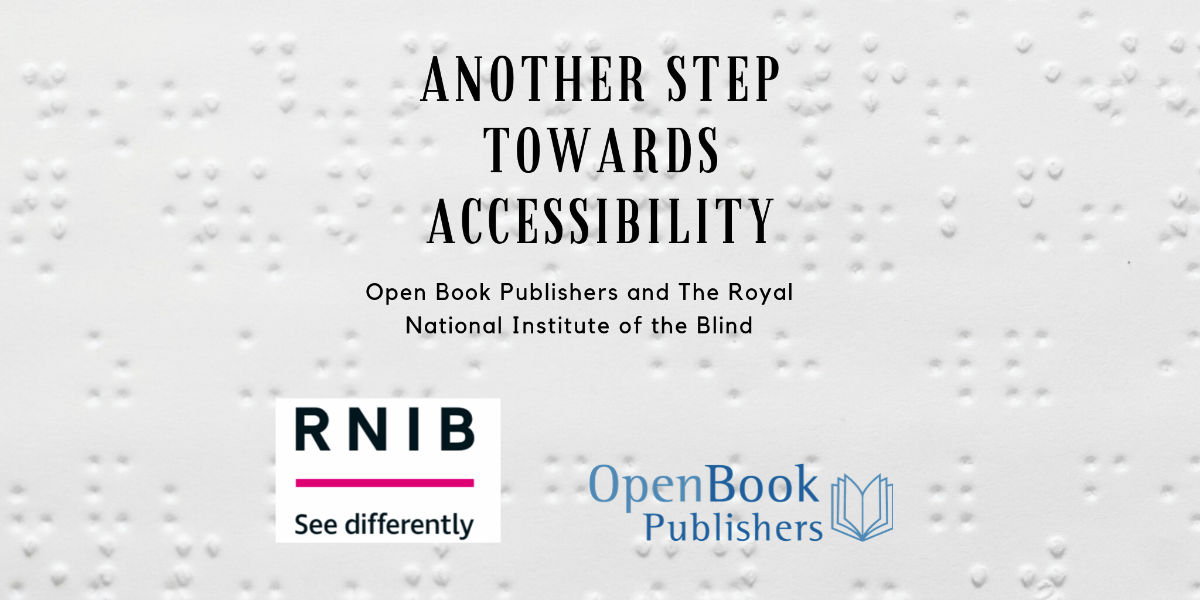
Open Book Publishers and the RNIB
Did you know that OBP works in partnership with the Royal National Institute for the Blind?
We have made all of our books available in PDF and EPUB on the RNIB Bookshare platform, which provides education resources for print-disabled learners, including those with dyslexia or who are blind or partially sighted. Using the EPUB file, the RNIB can make the book available in all accessible download formats, including Braille-ready and DAISY, while the PDFs are available as an accessible PDF.
To find out more about our partnerships visit https://www.openbookpublishers.com/section/23/1.

Applied Theatre Praxis Series
Applied Theatre Praxis(ATP) is an OBP series that focuses on Applied Theatre practitioner-researchers who use their rehearsal rooms as "labs”: spaces in which theories are generated, explored and/or experimented with before being implemented in contentious and/or vulnerable contexts. As Helen Nicholson comments (in Etherton and Prentki, 2006:143), "for those of us engaged in research and dramatic practice which take place in community, educational and institutional settings, there is a need to submit our work to critical questioning as part of a continual process of negotiating and renegotiating our ethical positioning”. In this vein, ATP invites writing that is focussed on "theory building” (Hughes and Wilson, 2004:71) ― writing that draws from the author/s’ praxis to generate theory for diverse manifestations of Applied Theatre.
Given OBPs flexible publishing format, this series welcomes both traditional-length and short-form monographs – the latter being applicable to works that fall between a traditional monograph (80,000 words) and a journal article (5,000 words). Furthermore, since OBP supports the integration of multimedia, books in the ATP series could contain audio-visual documentation that explicitly showcases the dynamism involved in theatrical research.
We welcome proposals for new titles in this series. Those interested should contact Dr Alessandra Tosi.
Editorial Board: Nandita Dinesh and Sruti Bala.
Please click here to view and download the leaflet for this series.
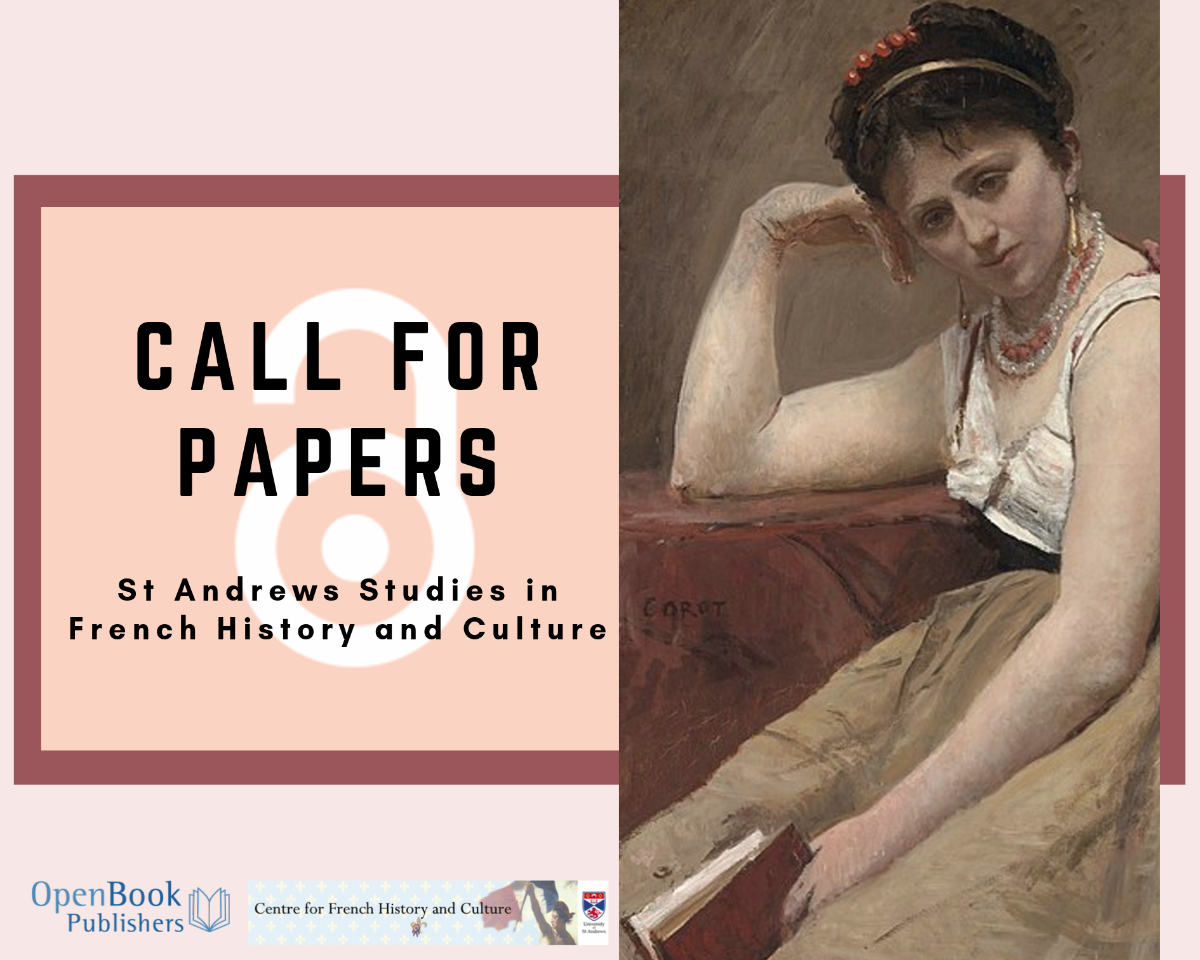
St Andrews Studies in French History and Culture Series
St Andrews Studies in French History and Culture, a successful series published by the Centre for French History and Culture at the University of St Andrews since 2010 and now produced in collaboration with OBP, aims to enhance scholarly understanding of the historical culture of the French-speaking world. This series covers the full span of historical themes relating to France: from political history, through military/naval, diplomatic, religious, social, financial, cultural and intellectual history, art and architectural history, to literary culture. The purpose of this series is to publish a range of shorter monographs and studies, between 25,000 and 50,000 words long, which illuminate the history of this community of peoples between the end of the Middle Ages and the late twentieth century. Titles are rigorously peer-reviewed by the editorial board and by external assessors, and they are available both in digital format and hard copies.
This is the first Open Access book series in the field to combine the high editorial standards of professional publishing with the fair Open Access model offered by OBP. You can read more about this series here. You can also get in touch with the Centre for French History and Culture here.
We welcome proposals for new titles in this series. Interested scholars should contact Dr Alessandra Tosi or, if preferred, Dr Justine Firnhaber-Baker, the series' editor-in-chief.

About Us: An Interview with Lucy Barnes
Lucy began working for OBP as an editor in 2016. She has recently taken on a new role as our Outreach Co-ordinator, spreading the word about OA far and wide!
Could you give us a glimpse of how you first became involved with open access?
It was actually when I was submitting my own article for publication; it had to be made openly accessible due to funder requirements. To me this was entirely a matter of compliance with policy—it was an administrative hassle—and the 'Green' OA version of the article seemed very uninspiring, since it was simply my own Word document tucked away in a repository.
It wasn't until I came to work at OBP that I realised the enormous potential of OA: it shouldn't be about compliance, but about the best version of the work being made available to as many readers as possible. Seeing our brilliant books being read by large numbers of people is hugely exciting.
Who should be promoting open access—other than OA publishing houses such as OBP?
Anybody who cares about research! But there's a particular onus on senior academics to blaze a trail: to understand the changes in the publishing landscape that are being driven by OA; to advocate for fair models of access without expensive charges for authors; and to support publishers that are providing such models.
How should OA advocates deal with resistance to OA within institutions and among researchers and faculty?
By engaging in conversation and providing information. There are a lot of myths and misconceptions about open access—sunlight is a great disinfectant as far as these are concerned—and a number of powerful intellectual and ethical arguments in its favour. A key question for researchers opposed to OA is: why publish if not for your work to be read as widely as possible? Arguments that the readership for monographs is specialised, limited and, conveniently, already in the privileged position of being able to access university libraries (or to pay £100 for a book) seem to me to be self-defeating—if the audience for your discipline is really so small, why should the work be publicly funded? Open Access publishing shows us that the audience for monographs in the HSS is broad and deep: just look at our readership statistics! People are hungry to read this work, and this is a really positive indication for the future of HSS disciplines.
Do you think there is enough information available about OA publishing, especially for early career researchers?
There is a wealth of information available; the problem is that it's very diffuse. Researchers have a lot of demands on their time and they don't necessarily want to spend it getting to grips with what is currently a complex and fast-developing area. Part of my job will be to find ways of communicating clearly and concisely with academics about the benefits OA can bring to their research and teaching.
What are your upcoming projects and/or future plans?
Understanding the scope of the challenge I've taken on, and figuring out how to tackle it! In the near future I'm particularly looking forward to our plans for Open Access Week, especially the Open Access pack we're producing and the ScholarLed blog posts we'll be publishing; I'm also excited about heading to the Arctic Circle in November for the Munin Conference!

And finally...
We would welcome any comments or suggestions about our initiatives or about further services we could be providing. If there are any thoughts you would like to share with us, please email laura@openbookpublishers.com or contact us on Twitter or Facebook.


